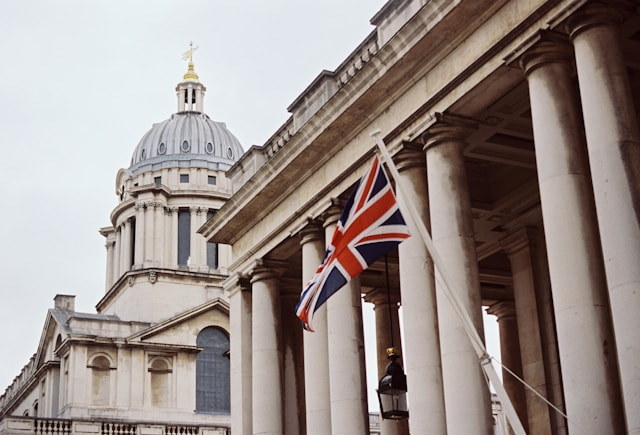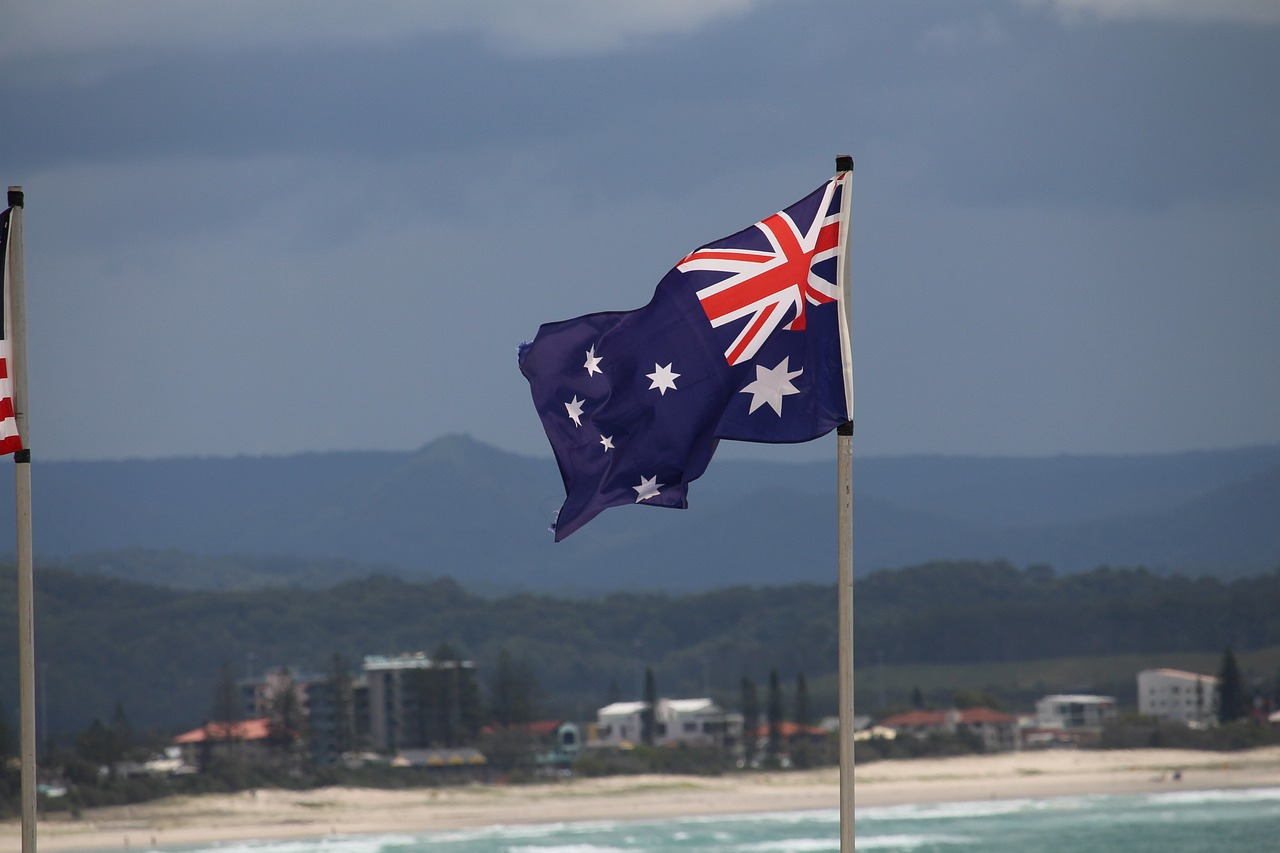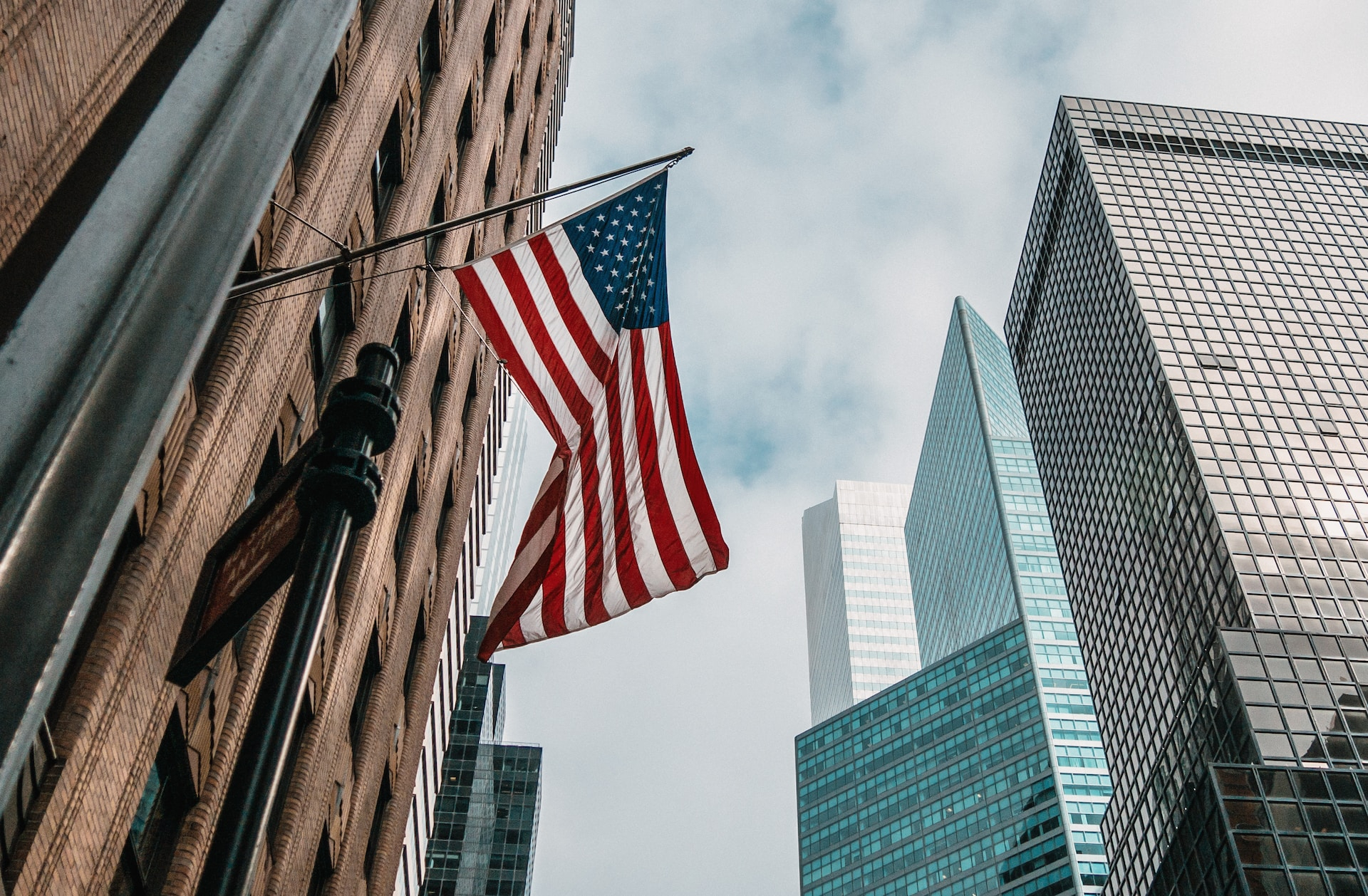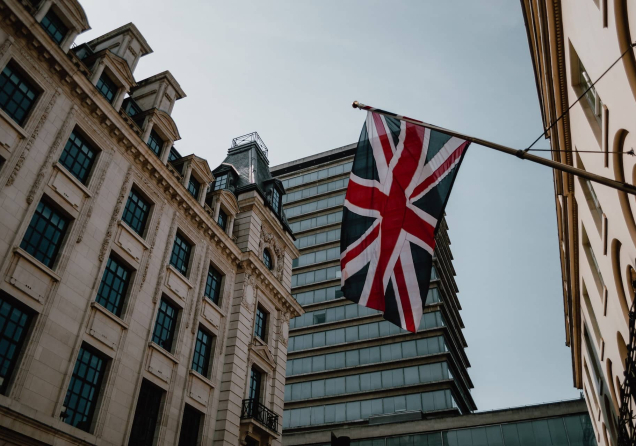Best Forex Regulators Around the World
The global forex, with billions of dollars traded daily, requires a robust regulatory framework to ensure fair practices, protect investors, and maintain market integrity. Without effective oversight and regulation, customer funds are at risk of theft, fraud and other financial malpractices. Different regulators have different laws and guidelines they enforce for both traders and brokers. Over time, some regulators have developed a reputation for their top-tier regulatory frameworks.
In this article, we will explore some of the best forex regulators in the world, highlighting some of the major forex companies under them and the importance of these regulators.
Disclaimer: Regulatory information can sometimes change. Always verify the current regulatory status of a broker from time to time.
Financial Conduct Authority (FCA) - United Kingdom
The Financial Conduct Authority (FCA) is one of the most respected financial regulators globally, known for its stringent oversight of the UK’s financial markets. FCA-regulated brokers are subject to some of the most comprehensive and rigorous regulatory requirements globally. These brokers must adhere to strict standards, including high capital requirements and robust risk management protocols.
The FCA oversees a wide range of financial institutions, including forex brokers, investment firms, banks, and insurance companies. It ensures they operate with honesty, fairness, and professionalism. In terms of consumer protection, the FCA enforces strict rules to safeguard traders and investors. These include negative balance protection, mandatory client fund segregation, and participation in the Financial Services Compensation Scheme (FSCS), which protects eligible clients up to £85,000 per claim if a firm becomes insolvent.

The FCA also monitors firms to prevent misleading advertising, unfair trading practices, and fraud. It regularly issues public warnings about unauthorised firms and scams, and maintains a register of all licensed financial services providers. Further, the FCA is dedicated to enhancing financial literacy among UK consumers. Through its ScamSmart initiative, it warns the public about investment scams and unauthorised firms.
Notable FCA-Regulated Brokers
Here are some well-regarded Forex and CFD brokers regulated by the FCA:
- Pepperstone: A reputable, FCA-regulated broker known for its fast execution, low spreads, and wide range of CFDs across forex, indices, commodities, and cryptocurrencies, offered through popular platforms like MetaTrader 4, MetaTrader 5 and cTrader.
- IG: One of the oldest and most reputable brokers in the UK, IG is FCA-regulated and offers a vast selection of trading instruments.
- Forex.com: A globally recognised broker with strong FCA oversight, Forex.com provides a robust trading environment with access to a wide array of CFDs across MT4, MT5, and its own Forex.com Trader.
- XTB: While headquartered in Poland, XTB operates under FCA regulation in the UK. It offers the xStation 5 platform, tight spreads, and access to forex, indices, shares, and commodities.
- Saxo Bank - Saxo Bank is regulated by the FCA through its UK subsidiary, Saxo Capital Markets UK Ltd.
Cyprus Securities and Exchange Commission (CySEC) - Cyprus
The Cyprus Securities and Exchange Commission (CySEC) serves as the primary regulatory body for forex and CFD trading in Cyprus. It ensures compliance with strict EU MiFID II standards for investor protection. CySEC-regulated brokers must meet rigorous requirements, including minimum capital thresholds, segregation of client funds, and participation in the Investor Compensation Fund (ICF). The ICF program safeguards traders up to €20,000 per claim.
With CySEC-regulated brokers, traders benefit from enhanced security, including leverage limits and mandatory risk warnings, aligning with ESMA’s protective measures. Further, the CySEC monitors the behaviour of investment firms, ensures compliance with regulatory frameworks, and investigates potential market abuse, such as insider trading and manipulation. Firms found violating regulatory standards are subject to penalties, fines, or even license suspension or revocation.

Investor education and awareness are also part of the CySEC’s mandate. The regulator publishes regular announcements, warnings about unauthorised firms, and educational content to inform the public about investment risks, fraud prevention, and safe trading practices.
Top Brokers Regulated by The CySEC
Some of the notable Cysec-regulated brokers include:
- XM.com - XM.com is a CySEC-regulated broker serving over 15 million clients globally. It adheres to strict EU standards, ensuring client fund segregation, negative balance protection, and investor compensation via the ICF.
- XTB - XTB is a reputable, CySEC-regulated broker known for its proprietary xStation 5 platform and a wide range of assets, including CFDs as well as real stocks and ETFs.
- Libertex - Libertex is a long-established CySEC-regulated broker that offers CFD trading on a wide array of assets, including forex, cryptocurrencies, stocks, and commodities.
- FBS - FBS is another broker that operates under the regulation of the CySEC. It provides access to CFDs on forex, metals, indices, and energies through MT4 and MT5 platforms.
- eToro - eToro is a CySEC-regulated broker that is popular for its deep collection of market products and copy trading features.
Australian Securities and Investments Commission (ASIC) - Australia
The ASIC is a top-tier financial regulator known for its strict oversight of Australia's financial markets. Forex brokers regulated by the ASIC must adhere to rigorous standards, including strong capital requirements, segregated client funds, and robust risk management protocols. For these reasons, the ASIC is today considered one of the best regulators in the world.
This regulator plays a vital role in maintaining market integrity by monitoring and supervising trading activities on financial markets such as the Australian Securities Exchange (ASX). It ensures that these markets operate in a fair, orderly, and transparent manner. The ASIC enforces trading rules, oversees market participants, and holds them accountable for complying with their legal obligations.

In the area of consumer protection, the ASIC is responsible for licensing and regulating financial service providers to ensure they act efficiently, honestly, and fairly. This extends beyond just forex brokers and includes banks, credit unions, and insurance companies. The ASIC also regulates consumer credit activities, enforcing responsible lending standards and protecting consumers from deceptive or unfair practices.
The ASIC is also committed to improving financial literacy across Australia. Through its MoneySmart website, it offers free, independent, and unbiased financial information and tools to help individuals make well-informed financial decisions. Additionally, the ASIC runs various programs aimed at promoting investor education and increasing public awareness of financial matters.
Notable ASIC-Regulated Brokers
Here’s a shot list of some well-known Forex and CFD brokers regulated by the ASIC:
- Pepperstone: Offers ultra-low spreads and rapid execution speeds, supporting platforms like MetaTrader 4, MetaTrader 5, and cTrader.
- FP Markets: Provides ECN pricing and a wide range of trading instruments, catering to both novice and experienced traders.
- IC Markets: Known for deep liquidity and tight spreads, making it a favourite among high-frequency traders.
- eToro: Social trading platform with ASIC regulation, with CFD offerings in Australia.
- CMC Markets: A globally recognised broker with ASIC oversight, offering Forex, stocks, and CFDs.
- IG Markets: One of the largest ASIC-regulated brokers, providing a wide range of markets.
- City Index: Regulated by ASIC, offering Forex and CFD trading.
- Plus500AU: ASIC-regulated, known for its user-friendly platform and CFD trading.
Commodity Futures Trading Commission (CFTC) & National Futures Association (NFA) - United States
The United States has one of the strictest and most protective regulatory environments for forex trading. This market is primarily overseen by two key bodies: the Commodity Futures Trading Commission (CFTC) and the National Futures Association (NFA). Together, they form the backbone of the US forex market regulation, ensuring transparency, integrity, and investor protection.
The Commodity Futures Trading Commission (CFTC) serves as the primary federal regulator overseeing the U.S. derivatives markets, which include forex, commodities, and futures. Founded in 1974, the CFTC aims to foster market transparency, integrity, and accountability while safeguarding participants from fraud and manipulation. Complementing its efforts, the National Futures Association (NFA) operates as a self-regulatory body. It enforces compliance with CFTC rules, conducts broker audits, and upholds industry standards.
Together, the CFTC and NFA establish a comprehensive regulatory framework for forex brokers operating in the United States. These regulations include strict capital requirements, the segregation of customer funds, and adherence to stringent reporting and disclosure standards.

It's important to note that due to these stringent regulations, the number of forex brokers accepting U.S. clients is relatively limited compared to other jurisdictions. However, there are still several well-regarded brokers that serve traders in the US.
Popular CFTC and NFA-Regulated Forex Brokers:
Some of the well-known forex brokers under CFTC and NFA include:
- OANDA US - A well-established broker regulated by both the CFTC and NFA, known for its transparent pricing and robust trading platform.
- Forex.com - A leading US broker that is both CFTC registered and an NFA member. Offers competitive spreads and a proprietary trading platform alongside MT4.
- IG US - Part of the global IG Group, IG US is regulated by the CFTC and is a member of the NFA. It provides access to forex and other markets with competitive trading conditions.
- TD Ameritrade - While primarily a stock brokerage, it offers forex trading under CFTC/NFA oversight.
Dubai Financial Services Authority (DFSA) - United Arab Emirates
Within the Dubai International Financial Centre (DIFC), the Dubai Financial Services Authority (DFSA) provides a robust regulatory framework specifically for Forex brokers operating in this global hub. The DFSA's oversight ensures that these brokers adhere to international best practices. It emphasises investor protection through measures like fair conduct of business rules and transparent operations.

By setting and enforcing strict requirements and actively monitoring market activity, the DFSA fosters a secure and efficient Forex trading environment. This has contributed to its reputation as a trusted financial regulator, especially in the Middle East. Some of the top brokers regulated by the DFSA include:
Notable DFSA-Regulated Brokers
Some of the top brokers regulated by the DFSA include:
- Pepperstone - Offers a swap-free account that follows Sharia law.
- HFM - Offers various account types and trading tools tailored for Middle Eastern traders.
- IG - A global leader in forex offering an extensive range of markets and robust trading platforms.
- HYCM - This DFSA-regulated broker has over 40 years in the market and provides a deep collection of market products.
Capital Markets Authority (CMA) - Kenya
The Capital Markets Authority (CMA) is the chief regulator of Kenya's financial markets, including the forex trading sector. Established to promote and facilitate the development of an orderly, fair, and efficient financial markets ecosystem, the CMA sets and enforces standards for market participants.

Brokers regulated by the CMA are expected to adhere to guidelines designed to protect investors and ensure market integrity. These guidelines typically encompass requirements for capital adequacy, the segregation of client funds from the broker's operational accounts, and transparent business conduct. The CMA plays a crucial role in fostering confidence in Kenya's financial markets and ensuring a level playing field for both brokers and traders.
Notable Brokers Regulated by CMA
Some of the major forex broker companies regulated by the CMA include:
- Pepperstone
- Exness - A multi-asset international broker with a huge presence in Kenya and Africa at large. It offers various trading accounts with some of the lowest minimum spreads.
- FP Markets.
- HFM
- FXPesa - A part of the Equiti Group, offers trading in Forex and CFDs.
Financial Sector Conduct Authority (FSCA) - South Africa
Within South Africa, the Financial Sector Conduct Authority (FSCA) serves as the dedicated market conduct regulator for the financial services industry. Established to enhance the efficiency and integrity of financial markets, the FSCA's mandate centres on promoting fair treatment of financial customers, providing financial education, and contributing to overall financial stability.
Forex brokers operating under FSCA regulation must adhere to specific conduct standards and licensing requirements. This ensures transparency, security of client funds through segregation, and responsible trading practices.

Notable Brokers Regulated by FSCA
Here is a list of Forex brokers regulated by the Financial Sector Conduct Authority (FSCA) in South Africa.
- Exness
- FP Markets
- HFM
- IG
- Tickmill
- Octa
- AvaTrade
- Plus500
- FxPro
Financial Services Authority (FSA) - Seychelles
The Financial Services Authority (FSA) in Seychelles is the regulatory body responsible for licensing, supervising, and developing the non-bank financial services sector in Seychelles. The FSA has built a reputation for maintaining a balance between investor protection and business flexibility, making it a popular regulatory destination for many global forex brokers.

Brokers licensed by the FSA are required to maintain adequate capital, follow Anti-Money Laundering and Counter Financing of Terrorism guidelines, and ensure operational transparency. Additionally, the FSA frequently audits licensed brokers, issues public warnings against unauthorised firms, and maintains a registry of all licensed entities.
Notable Brokers Regulated by the FSA
Here are some of the major forex brokers regulated by the Seychelles Financial Services Authority (FSA):
- Exness
- Tickmill
- HFM
- FP Markets
- Vantage Markets
Importance and Roles of Regulatory Bodies in Forex Trading
Forex regulatory bodies are critical for a secure and fair trading environment, fulfilling several key roles. These include:
- Protecting Investors: Financial regulators mandate that brokers prioritise their clients' interests by ensuring fair dealings, honest advertising, and protection from scams and unethical practices. This oversight fosters greater trust in regulated brokers.
- Ensuring Qualified Brokers: Through rigorous licensing processes, regulators ensure only financially stable, operationally transparent, and ethically sound brokers are authorised. They conduct thorough evaluations and ongoing reviews to uphold high industry standards.
- Safeguarding Client Funds: A core requirement of many regulators is the segregation of client money from the broker's operational funds. This crucial measure protects client assets even in the event of broker insolvency.
- Deterring Misconduct: Regulatory authorities enforce rules by imposing penalties such as fines, license suspensions, or permanent bans on non-compliant brokers. This ensures accountability and promotes a compliant industry.
- Managing Trading Risks: By setting leverage limits for retail traders (e.g., 50:1 in the U.S. and 30:1 in Europe), regulators aim to curb excessive risk-taking and prevent substantial losses for individual traders.
- Promoting Clear Information: Regulators require brokers to be transparent about all relevant aspects of trading, including fees, spreads, execution methods, risk disclosures, and service terms, empowering traders to make well-informed decisions.
- Maintaining Market Stability: Through regular audits and detailed financial reporting requirements, regulatory bodies monitor brokers for signs of fraud, financial instability, or mismanagement. As such, they protect the overall market integrity.
- Providing Recourse for Traders: When disputes arise, regulators offer formal channels for resolution. This gives traders a legal avenue to seek fair outcomes and potential compensation for unfair treatment.
- Upholding Fair Trading Practices: By preventing market manipulation and enforcing ethical conduct, regulators ensure a level playing field for all participants, enhancing the credibility and efficiency of the forex market.
- Combating Financial Crime: Implementing KYC and AML policies is crucial for preventing brokers from being used for illegal financial activities and for verifying client identities to minimise fraud.
Closing Remarks
Regulation is fundamental to the forex market, providing essential safeguards for traders. By imposing rigorous standards and ensuring accountability, regulatory bodies foster a secure, transparent, and equitable trading environment. For both new and seasoned traders, selecting a forex broker regulated by a reputable authority such as the FCA, the ASIC, the CySEC, or the NFA and CFTC significantly minimises the risks of fraud, mismanagement, and unfair dealings.
Remember that each regulatory body operates within its specific jurisdiction and enforces its own set of rules. Ensure that you pick a broker that obeys the regulatory policy in your country. In some jurisdictions, regulators may allow brokers to operate without necessarily obtaining a local license. Ensure you understand the legal frameworks around such policies before choosing a broker to trade with.
Top-Tier Trusted Brokers
The table below contains links to 3rd party websites of our top partners from whom we receive compensation at no additional cost to you.




























